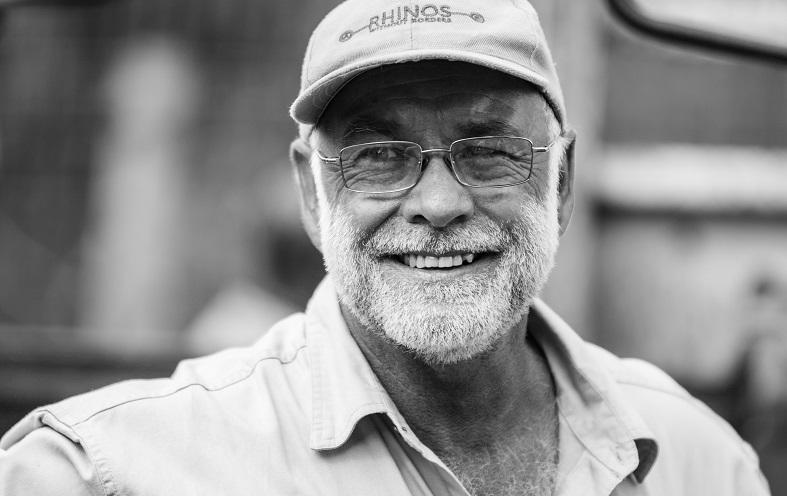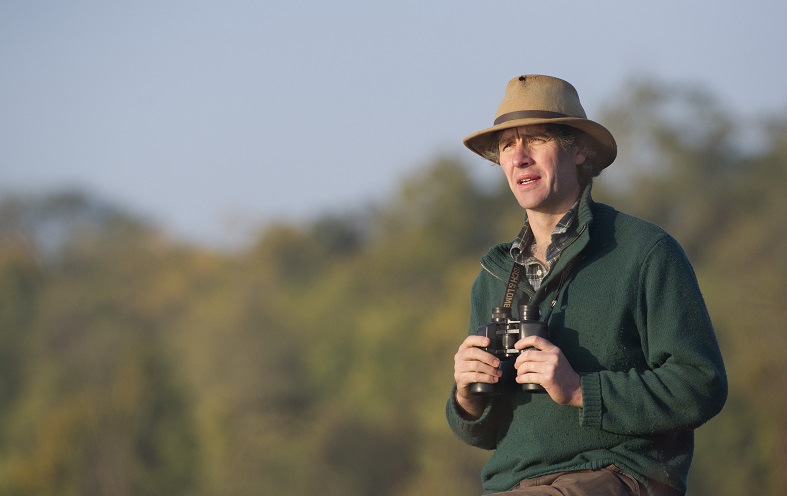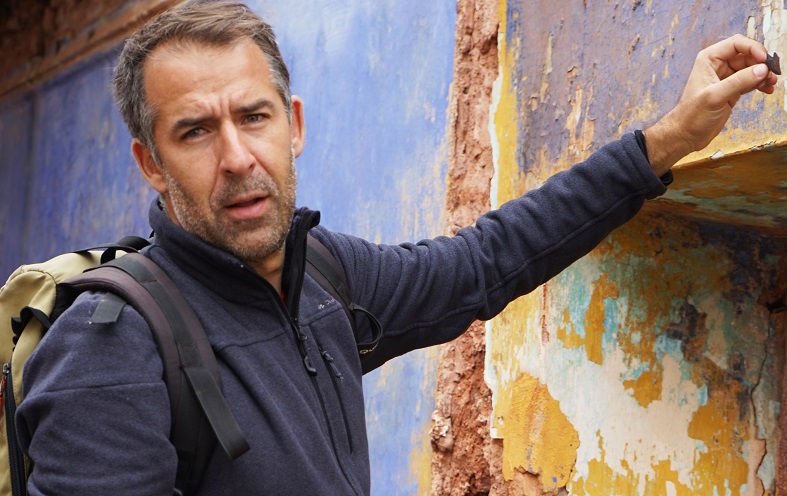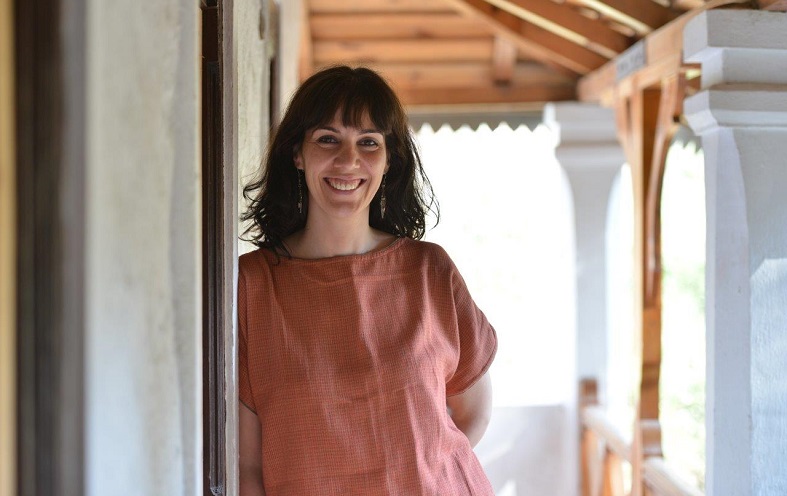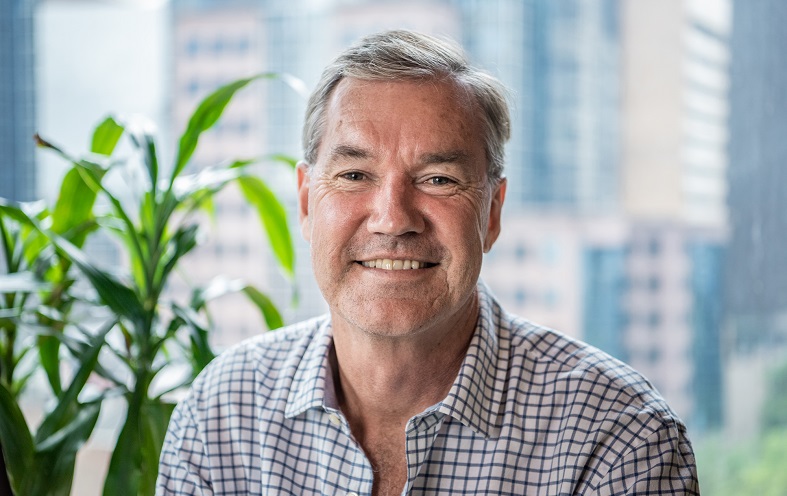
Large travel companies with significant worldwide presence are always looked up to. How can these business entities utilise this opportunity in setting sustainability standards for the industry in general?
In this interview, Darrell Wade, Co-Founder & Chairman of the Intrepid Group explains the journey adopted by the company to operate environment and community-friendly, while offering enriching tours and experiences.
As the largest carbon-neutral travel company (since 2010), Intrepid is an inspiration for the industry, illustrating that tourism has the scope of making a positive change, even at the grassroots level.
Darrell also discusses how the pandemic-induced travel restrictions should serve as a reminder to encourage more domestic travel and carbon offsetting in the day-to-day business.
Darrell, you have three decades of experience in the travel industry. When did you first discover your passion for sustainable tourism?
I’ve been lucky enough to have been a regular traveller since a very young age, but it wasn’t until I was 21 that I headed off for a year backpacking through Asia that my travel paradigm changed. Then in 1988, I lead a group of 14 friends across Africa in a converted rubbish truck. The group included my fellow Intrepid co-founder Geoff ‘Manch’ Manchester and my new wife Anna.
That was the first time Manch and I talked about creating a style of travel that gave travellers the opportunity to enjoy local experiences and stay in communities. It was a very connected, fun way to travel to be a part of the destination, rather than removed from it. We didn’t use the word sustainability those days – no one did – but before long, we realised that it had the huge fringe benefit of being a highly sustainable and responsible way to travel.
We started Intrepid the following year – I was running the business from my kitchen table in Melbourne and Manch was our first tour leader in Thailand. We had 47 customers that first year, so we certainly were not a success from day one! It all grew from there, and in 2019 we carried 460,000 passengers.
Responsible and sustainable travel has always been at the heart of our business – we realised that not only did our customers love the respectful way we travelled, but local communities were really supportive too. Everyone was a winner! Realising this was a bit of a hidden competitive advantage, we employed a responsible travel manager very early on. Everyone thought we were some kind of crazy left-wing hippy outfit!! But actually, we knew it was the key to our success and so wanted to build sustainability as a part of our business model.
In 2002, we established The Intrepid Foundation so travellers could give back to the communities they visited – again a great way to reinforce our values to our travellers, whilst also getting them to actively support our work. Once again, everyone won out of the arrangement – our travellers, our staff, the local communities we relied on and us as a business. It was a unifier.
In 2005, I read the book The Weather Makers by Tim Flannery and I experienced a serious existential crisis. I realised that the travel industry – and our business – was directly contributing to climate change. We were a part of the problem! I asked the whole executive team to read the book and I became one of the first Australians to complete training with Al Gore and the Climate Reality Project in 2007.
From there, we set a goal for Intrepid to become carbon neutral, which we achieved in 2010. Once again some thought we were a bit crazy taking such a stance and going out on an expensive limb like that. But actually, we were just putting our values into action – and our customers really appreciated us for doing that. It won us business rather than costing us business.
Intrepid Travel is the world’s largest carbon-neutral travel company since 2010. How are you planning to achieve Intrepid’s next ambitious goal of becoming a climate-positive company?
We realised in 2019 that being carbon neutral simply was no longer enough. The world wasn’t changing fast enough, emissions were still rising, as were global temperatures. Carbon offsets play a role, but they are not enough alone to address the climate crisis. Real action and commitment are needed to actually reduce the amount of carbon we’re all producing, not simply offset it (although we continue to offset, of course).
Around this time, it was clear that global warming was having ever greater impacts – and this wasn’t only hurting people, communities and wildlife around the world, it was also affecting our business. We were having to change itineraries due to extreme weather and our office in Bangkok experienced flooding.
At the start of 2020, we declared a Climate Emergency as a founding member of Tourism Declares, a collective of businesses, organisations and individuals who are concerned about the climate crisis.
As part of that, we adopted our seven-point climate commitment plan, which includes setting science-based carbon emissions targets and becoming climate positive by actually creating an environmental benefit by removing additional carbon dioxide from the atmosphere. That includes offsetting more carbon than we produced in 2020 (25% extra), which is our first step towards our commitment to being climate positive. We use gold-standard carbon offsets that produce a number of other social and environmental benefits, such as the Savannah Burning project in Arnhem Land in Australia’s Northern Territory.
Despite 2020 being a devastating year for travel, Intrepid became the first global tour operator with verifiable science-based targets through the Science Based Targets initiative (SBTi). This independently assesses corporate emissions reduction targets in line with what climate scientists say is needed to meet the goals of the Paris Agreement for a 1.5C° future.
From a practical perspective, that means we will transform our business for a low-carbon future by reducing emissions across our operations and trips, over the next 15 years.
This is a science-led approach, which will see us reduce absolute scope 1 and 2 greenhouse gas emissions by 71 per cent by 2035 from a 2018 base year. We’ll also reduce scope 3 greenhouse gas emissions from our offices by 34 per cent per full-time employee equivalent, and from its trips by 56 per cent per passenger day over the same period.
Congratulations on Intrepid Travel being named as one of the World’s Most Innovative Companies in 2021, according to Fast Company. What impact does this recognition have on your business?
Thank you! This is indeed a fantastic recognition – to be named alongside travel brands such as Airbnb, particularly after the year that was 2020.
Intrepid was recognised for our commitment and action to address climate change, our product innovation with the development of a range of 100+ new local and domestic trips, and our ongoing commitment to purpose initiatives, such as our not-for-profit The Intrepid Foundation.
This recognition helps to demonstrate that standing for something and leading with purpose is the best way to differentiate your business and brand.
We know that our people and prospective employees want to work for innovative organisations that reflect their own values, so this helps us attract great people. We also know that customers want to support businesses that support causes that are important to them.
Intrepid is the world’s largest certified travel B Corp and we’ve seen how other B Corps, in many different industries, have been able to grow their business and brand by living their values and leading on social or environmental issues.
Of course, having our name in one of North America’s leading business publications helps to raise awareness too, especially since we’ve just launched a new range of trips for Americans in the US. So it’s another example of creating a positive feedback loop: values-based decisions lead to good outcomes lead to better customer and staff experience leads to further growth. And on the cycle goes! It’s not rocket science so I really hope other companies can learn from our experience and start to put values at the heart of what they do.
What tips or suggestions do you have for smaller travel establishments that want to engage with carbon offsetting, but don’t know where to start?
Carbon offsetting is a good start, but it certainly isn’t the only thing a travel business – whatever its size – can or should do. Look to reducing emissions where you can, then offset the balance that is difficult or impossible to reduce.
Not all carbon offsets are created equally, so the first thing is to do some more research and understand a little bit more. Gold Standard is a good place to start! They are what it says on the tin – the gold standard.
We focus on measurement, reducing emissions and reporting because this is the only way businesses can really start to take meaningful action. I suggest that all travel leaders download Intrepid’s free Decarbonisation Guide, which is available on our website. This provides a step-by-step guide and explanation about how to start your carbon journey. It is authored by Intrepid’s Environmental Impact Specialist Dr Susanne Etti, who is an expert in the field. It includes resources, links and information to help other travel businesses start to measure your business’s carbon emissions. Dr Etti has even conducted numerous one on one discussions with companies who’ve downloaded the guide to help them get started, just because she’s personally so passionate about climate change and the UNWTO has written an article about this collaborative approach.
Finally, I would recommend that businesses reach out to organisations like Tourism Declares to find out more. Tourism Declares a Climate Emergency is a community of 230+ travel organisations, companies and professionals who have declared a climate emergency and are coming together to find solutions.
Tourism Declares is really mobilising the industry, including organisations of all sizes, and they have ambitious plans ahead of COP26 later in 2021. The travel and tourism sector needs to more or less halve its carbon impact by 2030. We can only achieve this goal if we all work together, sharing learnings, supporting each other and advocating for innovation.
Which achievements are you most proud of as the Co-Founder & Chairman of Intrepid Group so far?
- I guess ultimately it’s about providing extraordinary holiday experiences to millions of people, and doing that in a way where we all grow and learn things. It’s incredibly satisfying.
- Becoming carbon-neutral all the way back in 2010 was a big achievement, since many companies are only thinking about it now, and more recently becoming the first global tour operator with verified carbon emissions targets by the Science Based Targets initiative in 2020
- Achieving B Corp certification in 2018, which included becoming the first certified B Corps in Vietnam, Cambodia and Sri Lanka. B Corp is a validation tool for yourself, your staff and your customers that you are heading in the right direction and how to improve that direction in the future.
- Our decision to ban elephant rides on our trips back in 2014, which was a catalyst for the rest of the industry and many companies followed our lead
- Achieving our goal to double our number of female tour leaders globally – we did this in 2019, a year earlier than we planned – and it was an important milestone as tour leader has often been viewed as an unsuitable job for women in some countries around the world
- In 2020, I was named elected as a Vice-Chair of the WTTC and Chair of its Sustainability Committee. This is recognition of the decades of work that Intrepid has put into sustainability and I’m proud that Intrepid is seen as a leader and that I’m in the position to help influence our industry globally.
Following the coronavirus pandemic, what trends will we observe once travel restrictions are eased?
The pandemic has clearly had a devastating impact on Intrepid, and all travel businesses. But I really believe that we will see a really strong upsurge in demand for leisure travel and particularly our style of travel when tourism can restart again safely.
The days of mass tourism and people rushing through countries to tick off ‘the sights’ and overwhelming cities with overtourism are hopefully long gone. The pandemic will change our societies and I believe people will choose to travel more mindfully, slower and stay longer in destinations, especially if they have the option with their jobs to work remotely for part of the time.
We’re certainly seeing people travelling more closer to home already. We actually think this will be a long term trend too as people increasingly factor the carbon emissions into their lifestyles and personal choices. Intrepid has already launched more than 100 new local trips in countries including Australia, the UK and most recently the United States. This is the first time we’ve offered trips to people in their home countries. In the long term, I think over half of our business will be in domestic travel.
And, travellers will want to be in nature and do active trips, such as walking, hiking and cycling. We’re already seeing strong interest in these sorts of trips in places like Maine in the US, Cornwall in the UK and Northern Territory in Australia. This has a lot of benefits for local communities and, of course, more local travel and fewer flights means fewer carbon emissions, which is a win-win.
The pandemic has set many destinations back, with no hints of a full recovery anytime soon. To what extent will the current situation impact the commitment of cities, regions, or countries to sustainable tourism?
This is a real risk and a serious concern, especially for us as the largest global adventure travel company, operating in more than 100 countries.
In some ways, the pandemic has prompted some cities, regions or countries to commit more deeply to sustainability, as they look for new innovative ways to reinvigorate their economies and reshape their workforces. More than 230 organisations have now declared a Climate Emergency, including destinations such as Visit Scotland and the Oregan Coast Visitors Association.
But that is certainly not true everywhere.
One of the challenges is that sustainability is sometimes viewed as expensive and difficult – and changing the way we live, work and travel will be hard – but I don’t believe we have any other choice. The pandemic has devastated many destinations but the impacts of climate change will be much worse, so we all need to commit to building back better and helping others to do so.
The pandemic has highlighted the huge social, health and economic gaps that exist around the world. I’m worried about the impact on children and education, that there could be a rise in child labour and an increase in orphanage tourism. We’ve worked with our partners Rethink Orphanages in the past to raise awareness about this and together we’ve advocated for orphanage tourism to be included in the Modern Slavery Act, making it illegal for operators to include it in their supply chain. But according to UNICEF, millions of children will be pushed into poverty due to Covid and orphanage tourism is likely to return, given the pattern of demand following other disasters.
These are the sort of things that businesses can do to help ensure tourism doesn’t just return after Covid – but that it restarts in a responsible and sustainable way.
Anything else you would like to mention?
Science-based targets are the most effective way to tackle carbon emissions and I really encourage every business leader to learn more about them. The sooner businesses respond, the greater the benefits – not only for the planet but also businesses that are first movers in this space will have the most opportunities to create value.
We’ve also seen that measurement is a real struggle for many businesses, but this is a really essential step. Otherwise, businesses risk ‘greenwashing’ and not actually taking meaningful action.
Finally, I’d remind other leaders that they aren’t alone. We’re all on this journey together – so reach out to your network, get involved in organisations and really approach sustainability as an urgent business priority. And reach out to me or the leadership team of Intrepid – we’re here to help if we can!
Thank you, Darrell.
Connect with Darrell Wade on LinkedIn or find out more about Intrepid’s responsible travel initiatives here.
Enjoyed our interview with Darrell Wade of Intrepid on how the travel company champions carbon management and sustainable tourism development around the world? Thanks for sharing!

